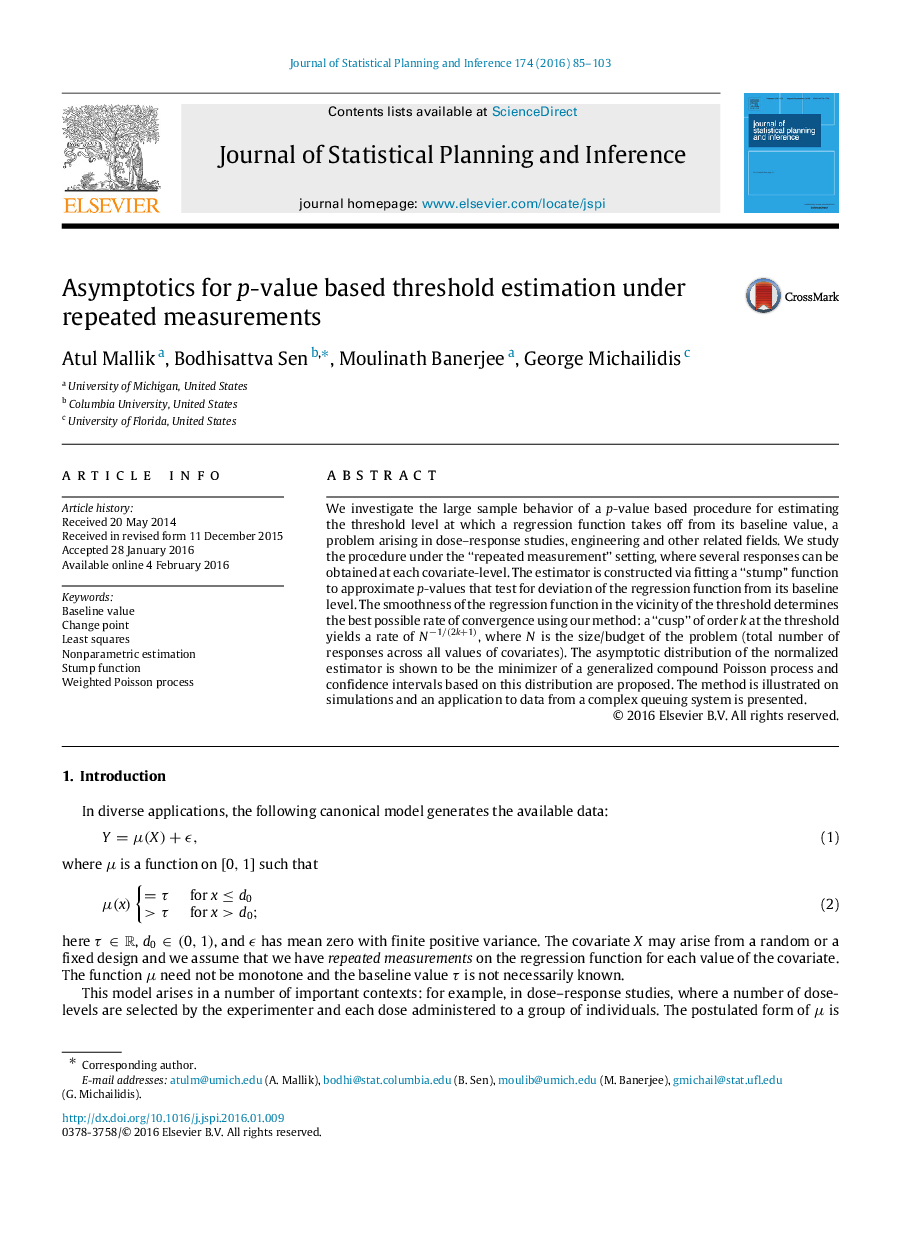| Article ID | Journal | Published Year | Pages | File Type |
|---|---|---|---|---|
| 7547391 | Journal of Statistical Planning and Inference | 2016 | 19 Pages |
Abstract
We investigate the large sample behavior of a p-value based procedure for estimating the threshold level at which a regression function takes off from its baseline value, a problem arising in dose-response studies, engineering and other related fields. We study the procedure under the “repeated measurement” setting, where several responses can be obtained at each covariate-level. The estimator is constructed via fitting a “stump” function to approximate p-values that test for deviation of the regression function from its baseline level. The smoothness of the regression function in the vicinity of the threshold determines the best possible rate of convergence using our method: a “cusp” of order k at the threshold yields a rate of Nâ1/(2k+1), where N is the size/budget of the problem (total number of responses across all values of covariates). The asymptotic distribution of the normalized estimator is shown to be the minimizer of a generalized compound Poisson process and confidence intervals based on this distribution are proposed. The method is illustrated on simulations and an application to data from a complex queuing system is presented.
Related Topics
Physical Sciences and Engineering
Mathematics
Applied Mathematics
Authors
Atul Mallik, Bodhisattva Sen, Moulinath Banerjee, George Michailidis,
